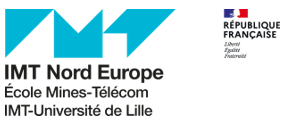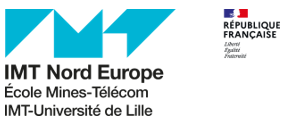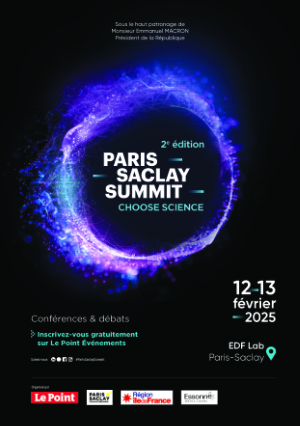Toward Proactive Intelligence: Environmental Contextual Information and Gesture Recognition for Characterizing Affordances in Human-System Interactions
| ABG-127020 | Thesis topic | |
| 2024-11-20 | Public/private mixed funding |
- Computer science
- Robotics
Topic description
Hello All,
We are proposing a PhD position in AI, Computer Vision & Robotics
Starting date
Funding category
Funding further details
Presentation of host institution and host laboratory
CESI LINEACT (UR 7527), the Digital Innovation Laboratory for Businesses and Learning in support of Territorial Competitiveness, anticipates and supports technological transformations in sectors and services related to industry and construction. CESI's historical ties with businesses are a determining factor in its research activities, leading to a focus on applied research in partnership with industry. A human-centered approach coupled with the use of technologies, as well as regional networking and links with education, have enabled cross-disciplinary research that centers on human needs and uses, addressing technological challenges through these contributions.
Its research is organized into two interdisciplinary scientific teams and two application domains:
- Team 1, "Learning and Innovating," is primarily focused on Cognitive Sciences, Social Sciences, Management Sciences, Education Science, and Innovation Sciences. The main scientific objectives are understanding the effects of the environment, particularly instrumented situations with technical objects (platforms, prototyping workshops, immersive systems), on learning, creativity, and innovation processes.
- Team 2, "Engineering and Digital Tools," is mainly focused on Digital Sciences and Engineering. Its main scientific objectives include modeling, simulation, optimization, and data analysis of cyber-physical systems. Research also covers decision-support tools and studies of human-system interactions, especially through digital twins coupled with virtual or augmented environments.
These two teams cross and develop their research in the two application domains of Industry of the Future and City of the Future, supported by research platforms, primarily the Rouen platform dedicated to the Factory of the Future and the Nanterre platform dedicated to the Factory and Building of the Future.
Website :
Candidate's profile
Scientific and Technical skills:
- Proficiency in Python and C++.
- Advanced written/oral communication.
- Independence, rigor, and teamwork.
Relational Skills:
- Be autonomous, with a sense of initiative and curiosity.
- Ability to work in a team and maintain good interpersonal relationships.
- Be meticulous and rigorous.
Vous avez déjà un compte ?
Nouvel utilisateur ?
Get ABG’s monthly newsletters including news, job offers, grants & fellowships and a selection of relevant events…
Discover our members
 ADEME
ADEME  Groupe AFNOR - Association française de normalisation
Groupe AFNOR - Association française de normalisation  CASDEN
CASDEN  Institut de Radioprotection et de Sureté Nucléaire - IRSN - Siège
Institut de Radioprotection et de Sureté Nucléaire - IRSN - Siège  CESI
CESI  PhDOOC
PhDOOC  ONERA - The French Aerospace Lab
ONERA - The French Aerospace Lab  TotalEnergies
TotalEnergies  MabDesign
MabDesign  Institut Sup'biotech de Paris
Institut Sup'biotech de Paris  MabDesign
MabDesign  Généthon
Généthon  Ifremer
Ifremer  Laboratoire National de Métrologie et d'Essais - LNE
Laboratoire National de Métrologie et d'Essais - LNE  Aérocentre, Pôle d'excellence régional
Aérocentre, Pôle d'excellence régional  SUEZ
SUEZ  Nokia Bell Labs France
Nokia Bell Labs France  Tecknowmetrix
Tecknowmetrix  ANRT
ANRT
-
JobPermanentRef. ABG125662Association Bernard Gregory (ABG)Paris (3ème) - Ile-de-France - France

Responsable Recrutement, Relations Entreprises et Partenariats
Open to all scientific expertisesAny -
JobPermanentRef. ABG127643IMT Nord Europe- Les Hauts de France - France

Enseignante Chercheuse ou Enseignant Chercheur (Professeure ou Professeur) en Data/IA
Digital - Data science (storage, security, measurement, analysis) - TelecommunicationsConfirmed -
JobPermanentRef. ABG127640IMT Nord Europe- Les Hauts de France - France

CHARGEE/CHARGE DE RECHERCHE Génie et physique des matériaux polymères
Energy - Materials scienceConfirmed



